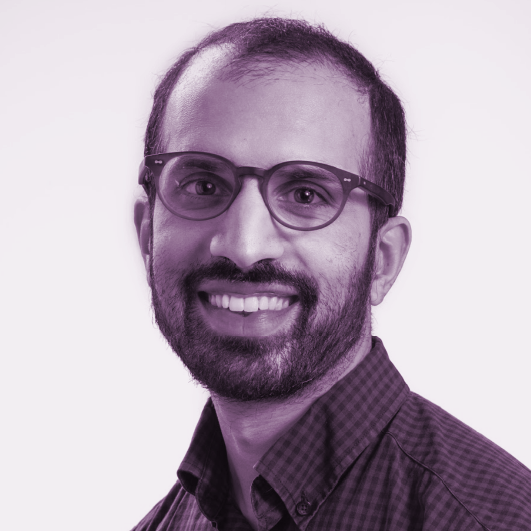The Paediatric Adaptive Sepsis Platform Trial (PASSPORT) is a different type of study called an adaptive platform trial (APT).
The platform allows researchers assess multiple treatments at the same time. The adaptations allow researchers to improve the treatments under investigation over time.
PASSPORT will be conducted in multiple centres across Australia and New Zealand and scaled to include other countries globally.
This adaptive platform trial will help us find effective treatments quicker and improve global outcomes for critically ill children with sepsis.
The trial will include children aged one month to 18 years with probable sepsis and will start enrolling patients in 2027.
OBJECTIVES
To develop clinical trial capacity and infrastructure to support global sepsis research in children within an adaptive trial framework.
To collaborate with healthcare stakeholders to answer priority research questions.
To partner with consumers, priority groups, and policymakers to ensure research questions are important and feasible for implementation.
To generate high-quality evidence for the efficacy and safety of multiple sepsis treatments to inform clinical practice.
To translate research findings into tangible improvements in health outcomes and healthcare delivery.
PASSPORT infrastructure
PASSPORT has established infrastructure funding to support multiple trial domains. This includes funding for the trial working group, data management system, and launch domains.
PASSPORT trial domains
PASSPORT will evaluate multiple treatments for sepsis in children at multiple stages of the sepsis life cycle. PASSPORT will also evaluate models of care that may improve sepsis outcomes, including quality of life in sepsis survivors. PASSPORT will evaluate the cost effectiveness of different treatments or models of care. Finally, PASSPORT will have an observational component that will collect sepsis registry data.
PASSPORT Trial Steering Group Members
Lead
Elliot Long
-
He is the Sepsis Research Team leader at Murdoch Children’s Research Institute, and an Associate Professor at The University of Melbourne Department of Critical Care. His doctoral study investigated the role of ultrasound in fluid resuscitation for sepsis.
As an executive member of the Paediatric Research in Emergency Departments International Collaborative (PREDICT) Network, Associate Professor Long has undertaken national and international sepsis-related research projects. These have included collaborations with other emergency research networks and individual sites in high and low-resource settings.
Co-lead
Prof Franz Babl
-
He is the director of research at the emergency department of the Royal Children's Hospital in Melbourne, Australia, and head of emergency research at the Murdoch Children's Research Institute, Australia. His research focus is on multicentre studies via national and international research networks.
Program Manager
Amanda Williams
-
Amanda is the Senior Research Nurse Coordinator for the Emergency Department Research Group at the Murdoch Children’s Research Institute. Amanda obtained her Bachelor of Nursing and Postgraduate Certificate in Nursing Practice (Paediatrics) in Victoria and worked in the Emergency Department at RCH for 13 years. Amanda has been involved within the research team in her current role as Research Coordinator since 2010. Amanda has coordinated several large, multicentre, NHMRC funded trials within the PREDICT network.
Data Lead
Hanan El Gharib
-
Hanah is a registered nurse with clinical experience in the Cardiac Surgery in Lebanon. In 2022, she relocated to Melbourne. Since early 2023, Hanah has been employed as a Paediatric Emergency Research Nurse, actively contributing to research aimed at improving outcomes in paediatric emergency care.
Statistical Leads
Leon Di Stefano
-
Dr. Leon Di Stefano is an applied statistician and Postdoctoral Research Fellow with Prof. Katherine Lee in the Clinical Epidemiology and Biostatistics Unit at the Murdoch Children's Research Institute in Melbourne, Australia. His research focuses on generating clear, decision-relevant evidence from biomedical experiments. Dr. Di Stefano completed his PhD at the Johns Hopkins Bloomberg School of Public Health in 2024.
Katherine Lee
-
She is co-Director of the Clinical Epidemiology and Biostatistics Unit at the Murdoch Children's Research Institute and the University of Melbourne Department of Paediatrics, and the Associate Director: Biostatistics of the Melbourne Children's Trials Centre.
Health Economic Lead
Kim Dalziel
-
She leads a program of research in child health and has specialist expertise in economic evaluation and modelling, and economic evaluation alongside clinical trials including Adaptive Platform Trials. Prof Dalziel co-leads the Health Services and Economics group at the Murdoch Children's Research Institute (MCRI).
Implementation Science Leads
Emma Tavender
-
As an implementation scientist and health services researcher, Emma’s research is focused on understanding health professional behaviour and designing and evaluating strategies to improve and sustain evidence-based practice in the acute care setting.
Denise O’Connor
-
Her research program is in implementation science and investigates the causes of, and the design and evaluation of solutions to address, research translation challenges including under/overuse of healthcare tests and treatments, and ineffective models of healthcare. She leads implementation research in 3 NHMRC-funded Centres of Research Excellence: Wiser Healthcare Collaboration, Australia and New Zealand Musculoskeletal Clinical Trials Network, and Antimicrobial Stewardship Programs in the Digital Era across One Health. She brings her expertise in evidence synthesis, implementation science, and health systems improvement to support the translation of effective interventions for sepsis in children into routine clinical care.
Steering Group Chair
Lisa Higgins
-
Lisa’s research focuses on clinical trial methodology, long-term outcomes, and conducting economic evaluations alongside clinical trials. She has extensive experience in adaptive platform trials, having being involved in the REMAP-CAP trial since its inception, leading its data coordination team throughout the pandemic and leading both the health economics and long-term outcomes globally. Lisa has more than 140 publications with over 14,000 citations and has multiple clinical trial publications in high impact journals including the NEJM and JAMA. Lisa has served as a member of the management committees of 23 large-scale international randomised controlled NHMRC/MRFF trials, including four adaptive platform trials.
Steering Group: High income countries
Sarah McNab
-
Dr Sarah McNab is a general paediatrician and the Director of General Medicine at The Royal Children’s Hospital in Melbourne. She holds honorary appointments with Murdoch Children’s Research Institute (where she completed a Clinician Scientist Fellowship) and The University of Melbourne. Sarah’s PhD research compared intravenous fluids in children and helped lead international practice change. Subsequently, she founded and co-chaired CIRCAN (Children’s Inpatient Research Collaboration of Australia and New Zealand) which has representatives from 42 hospitals.
Srinivas Murthy
-
His clinical and academic interests are in innovative clinical trials to improve the outcomes of severe infections.
Steve Tong
-
He leads the Staphylococcus aureus Network Adaptive Platform trial, which is recruiting participants in over 130 hospitals in 10 countries. His research interests include clinical trials for bloodstream infections, acute respiratory tract infections, paediatric sepsis, and bone and joint infections; and staphylococcal and streptococcal genomics, and infections affecting Australian First Nations populations.
Shane George
-
He is an active clinician researcher with an interest in topics which span both emergency and intensive care practice, including sepsis. He is vice-chair of the Paediatric Research in Emergency Departments International Collaborative (PREDICT) research network and a member of the Australia and New Zealand Intensive Care Society Paediatric Study Group (ANZICS PSG).
Debbie Long
-
A leading Australian researcher in paediatric critical care long-term outcomes, Debbie heads the Paediatric Intensive Care Optimising Long-term Outcomes (PICOLO) network, a collaboration of clinicians, researchers, and consumers dedicated to improving outcomes for children and their families following critical illness. She was elected co-vice chair of the Australian and New Zealand Intensive Care Society's Paediatric Study Group in 2025.
Amanda Gwee
-
She is a general paediatrician, infectious diseases physician, clinical pharmacologist, and Clinical Lead of Research in the Department of General Medicine at The Royal Children’s Hospital Melbourne. In addition, she is an Associate Professor in the Department of Paediatrics, at the University of Melbourne. Her research program focuses on optimising antimicrobial use and access in children and includes national and international clinical trials, pharmacokinetic/pharmacodynamic studies, and cohort studies.
Warwick Butt
-
Warwick has used and published on these therapies since 1991.Current trials include the role of high dose Vit C for severe sepsis.
Neil Wimalasundera
-
Dr Neil Wimalasundera trained in the UK and was clinical lead for the Wolfson Neurodisability service at Great Ormond Street Hospital before starting at the Royal Children’s Hospital in 2017. He is the Director of the Victorian Paediatric Rehabilitation Service at the RCH and specialist interests include the management of complex movement disorders, cerebral palsy and acquired brain injury.
Steering Group: Low-Middle Income countries
Adriana Yock-Corrales
-
She is part of the executive committee of RIDEPLA (Latin-American PEM research Network) and involved in research studies with publications in peer-reviewed journals.
Rahhika Raman
-
President of Paediatric Emergency Medicine chapter of Indian Academy of Paediatrics (2023–2024). Actively involved in improving Paediatric Emergency care in India. Interested in research that would contribute to establishing standards of care in our region.
Ozlem Teksam
Antoinette David
-
Her clinical research interest focuses on the management and outcomes of sepsis and HIV.
Viviana Pavlicich
-
She is also Professor of Paediatrics and Coordinator of the Postgraduate Program in Paediatric Urgencies and Emergencies at Universidad Privada del Pacífico in collaboration with the Ministry of Public Health and Social Welfare, as well as Director of the Advanced University Course at Universidad Privada del Este. She has served as President and now as Advisor to the Latin American Society of Pediatric Emergency Medicine, and the Co-Coordinator of RIDEPLA – Latin American Pediatric Emergency Research Network.
Jenala Njiram’madz
Paediatric Intensivist and Senior Lecturer with research interests in Critical Care, Infectious Diseases, Monitoring and safe patient transfer.
Consumers
Kate Rawnsley
Brea Kunstler
-
Her work bridges research, clinical practice, and policy to improve health outcomes locally and globally. As a survivor of sepsis, she brings lived experience and interdisciplinary expertise to the team.
Project Partners
Funders
Partner Links
ACCCN – Australian College of Critical Care Nurses
ACEM CTN – Australasian College of Emergency Medicine Clinical Trials Network
ACSQHC – Australian Commission on Safety and Quality in Healthcare
ACTA – Australian Clinical Trials Alliance
ANZICS PSG – Australian and New Zealand Intensive Care Society Paediatric Study Group
APLS – Advanced Paediatric Life Support
ASID – Australian Society of Infectious Diseases
CENA – The College of Emergency Nursing Australia
CHA – Children’s Healthcare Australia
CIRCAN – Children’s Inpatient Research Collaboration of Australia and New Zealand





























